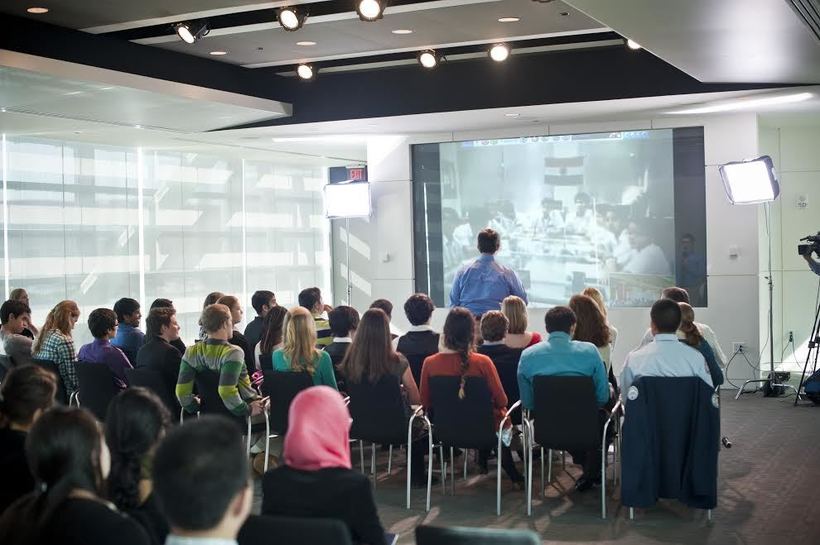What works best to help stop bullying in schools?

Peter K Smith, Goldsmiths, University of London and Fran Thompson, Goldsmiths, University of London
Bullying in schools has been recognised as a serious and pervasive problem now for at least two decades. There is now also evidence, including from the UK and other European countries, North America and Australia, that traditional forms of bullying in schools have decreased modestly over the last decade or so. This is very likely due to the increase in work to prevent bullying.
Yet much still persists. In 2010, the EU Kids Online project found 19% of children were victims of bullying and 12% bullied others. A recent follow-up study in 2014 suggested an increase in cyberbullying, though not in traditional bullying. Figures elsewhere are not dissimilar, although prevalence rates vary greatly in terms of how it is measured and how bullying is defined.
Lessons from Scandinavia
Bullying is usually defined as intent to harm another person repeatedly; with an imbalance of power, the victim cannot easily defend themselves. It can take the form of everything from physical and verbal attacks, to social exclusion, spreading rumours and cyberbullying.
Internationally, there have been many school-based anti-bullying programmes that bring about, on average, a reduction of some 20% in bullying. The Norwegian Olweus Bullying Prevention Programme aims to provide a different structure to school classrooms to discourage bullying and reward more helpful behaviours. The Finnish KiVa programme uses virtual learning methods and enlists high-status peers as defenders of those who are being bullied.
These two methods have been successfully replicated in their home countries, but the extent to which this can be done elsewhere should become clearer in the next few years.
In the UK, the philosophy has generally been not to adopt or impose a specific programme to stop bullying, but rather to make a range of options and resources available for schools to choose the most appropriate. There are now many sources of support for children, parents and teachers, from organisations such as the Anti-Bullying Alliance and BeatBullying.
To provide a good foundation for effective anti-bullying prevention and intervention, it is recommended that schools use an anti-bullying policy with clear definitions and procedures that are communicated to the whole school community.
Schools should have multiple avenues for reporting bullying that don’t stigmatise children, and a central recording system for incidents (particularly important as evidence). Staff also need ongoing training in intervention and regular auditing to measure the impact of anti-bullying work. Research is starting to show the range of strategies available to schools.
Preventing bullying
To introduce proactive strategies that can help prevent bullying, schools need to think about the whole school environment, including the classroom and playground. Schools should promote adults as good rolemodels, and provide an “open door” policy for parents or carers.
Other strategies can include using assemblies to underpin a clear, anti-bullying message or to develop the school council as an effective reporting system. The curriculum can also be used to embed anti-bullying work, while in the playground, schools can create quiet zones and train lunchtime supervisors.
Peer-support strategies use trained students to prevent and respond to bullying. These can include buddy schemes, peer mediation, online mentoring, anti-bullying committees and lunchtime clubs.
But some schemes, such as designated “buddy benches”, can be stigmatising if accessing peer support is too obvious. Others can be underused, or even misused. While peer supporters generally have high morale and are very positive about the schemes, pupils who use the schemes tend to have more mixed views, depending on the quality of support, accessibility of peer supporters, and follow-up on mentoring sessions.
Providing the right support for these kinds of schemes is vital. This might be that a school recruits the right number of peer supporters to avoid drop-out, or provides regular supervision with a designated supervisor.
And when it comes to the transition from primary to secondary school, peer supporters can be particularly effective – if the supporter to student ratio is high enough. Outreach work in primary schools can also help establish good relationships and help make school induction day easier for newcomers.
Reacting to bullying
Strategies to respond to bullying incidents after they happen also need to be put in place by schools. And there are a range of various possible responses.
Direct sanctions range from a “telling off”, to permanent exclusion and can send a clear message that bullying is not tolerated. To be effective, sanctions need to be expressed as a clear set of consequences in a school’s anti-bullying policy and used in the framework of another more restorative approaches. Isolation rooms for “internal exclusion” and a re-integration process for excluded students are also recommended.
Restorative approaches can provide an effective, flexible range of strategies to prevent and respond to all types of bullying. Schools using these strategies systemically report the best results in terms of stopping bullying. If using restorative approaches, all staff need to be trained and sanctions are needed as a back-up if the restorative process fails.
A third strategy is the seven-step support group method. It has been used by some schools in England because it is non-confrontational and avoids “punishment”. But other schools have chosen not to employ it because it avoids directly assigning blame or responsibility. Support groups can be effective especially for relational bullying, between friends. The strategy works best with older primary students and younger secondary students, particularly as they transition between the two schools.
The Pikas method of “shared concern” – where meetings take place with children suspected of bullying – is also non-confrontational but more rarely used. It may be effective as one of a range of strategies when other group-based approaches have not worked – or for “provocative victims”. For both support-group and Pikas methods, teachers and school staff need both specific training and other back-up strategies.
Research on school bullying over the last 30 years has resulted in a broad accumulation of knowledge about the issues involved. Two or three decades ago, we knew very little, and were unable to provide effective support for teachers, schools, parents and young people. We now know that well-planned interventions can substantially reduce bullying, although there can be pitfalls along the way. But there is still much to learn about which interventions are most effective and in which circumstances.
This article is part of a series on bullying. Read the other articles in the series here.
![]()
Peter K Smith, Emeritus Professor, Unit for School and Family Studies, Department of Psychology, Goldsmiths, University of London and Fran Thompson, Researcher, Unit for School and Family Studies, Department of Psychology, Goldsmiths, University of London
This article was originally published on The Conversation. Read the original article.





